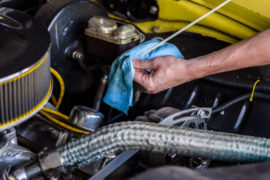The right auto insurance coverage can provide financial support when your car is damaged in an accident, is stolen, or is otherwise involved in an unfortunate incident. The policy can help to pay for repairs and, if you don’t have enough coverage, it can help to protect you from legal liabilities. There are several different types of auto insurance. By choosing the right coverage, you can make sure you’ll be well protected.
The lowest level of auto coverage is liability, which you’ll be required to carry by law in most states. Liability coverage pays for damage or injury to others in an accident that you cause. Bodily injury liability pays for medical bills, lost wages, and attorney fees if you injure someone in an accident, while property damage liability pays for another driver’s car or other property repairs. Be sure to select liability limits that offer you sufficient protection, because you could be personally liable for damages above your policy limits.
Collision coverage is another worthwhile form of insurance, covering damage to your car after an accident, no matter who’s at fault. This is especially valuable for drivers of newer or pricier vehicles, and repairs can be very expensive. So, while collision coverage is optional, lenders will often require it if you’re financing or leasing a car.
This type of coverage protects you from any incident other than a collision. These could include theft, vandalism, fire, or natural disasters such as hailstorms or floods. Comprehensive coverage will help defray the cost of replacing your car if it’s stolen or damaged by something other than a crash. Comprehensive coverage is also optional insurance that is highly recommended for those who live in areas prone to extreme weather events or high crime rates.
The second essential coverage is uninsured/underinsured motorist coverage. This coverage kicks in if you’re injured in an accident with someone who either has no insurance or too little insurance to pay for your damages. Considering that a significant percentage of drivers are uninsured or underinsured, this coverage is essential to ensure you aren’t left footing the bills for an accident that you didn’t cause.
Finally, personal injury protection (PIP) and medical payments coverage (MedPay) cover medical expenses for you and your passengers, regardless of who’s at fault in the accident. PIP can also cover lost wages and rehabilitation expenses, whereas MedPay covers only medical expenses.
Knowing about these coverages can help you put together an auto policy that suits your needs, and provides protection should you suffer an accident or other loss.


